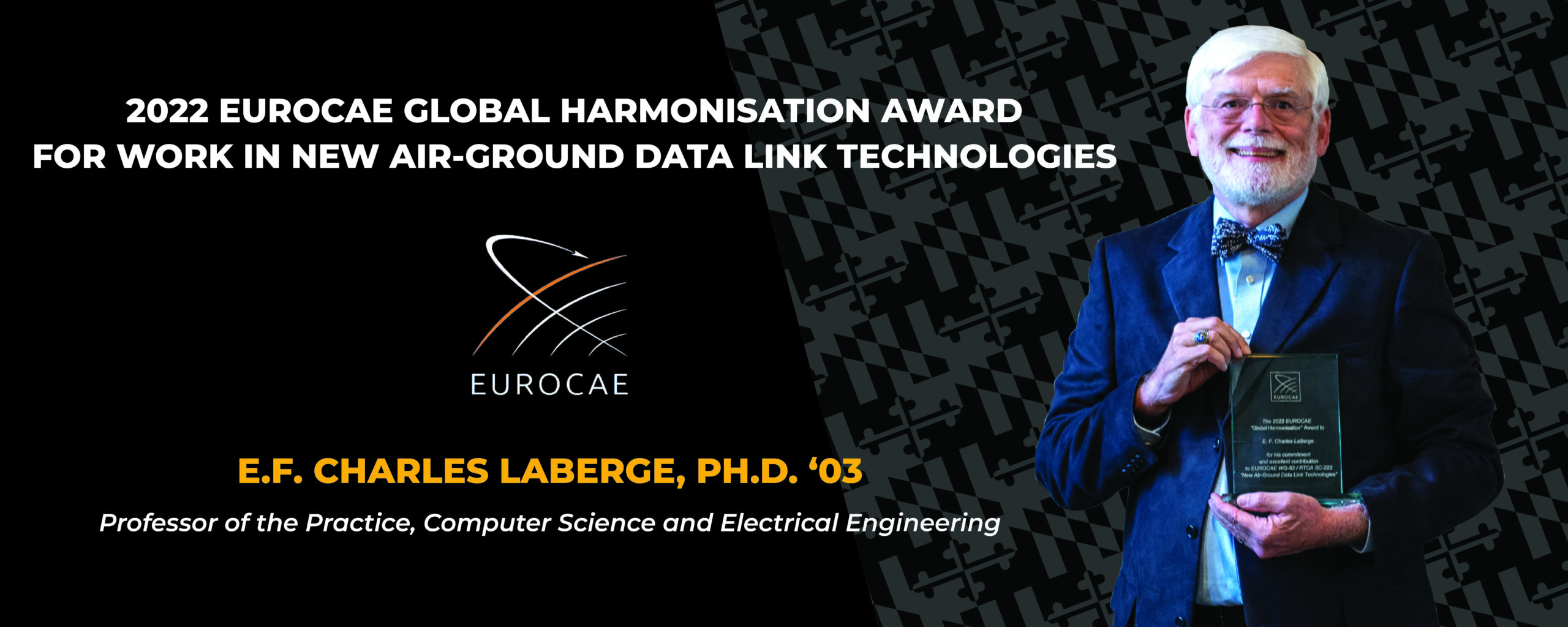
Dr. Chuck LaBerge, Professor of the Practice of CSEE at UMBC and immediate past Chair of RTCA SC-222, has been named the 2022 winner of EUROCAE Global Harmonization Award for his "commitment and excellent contributions to EUROCAE WG-82/RTCA SC-222 New Air-Ground Data Link Technologies." The award, which was announced at the 2022 EUROCAE Symposium in Warsaw in April, 2022, was presented on behalf of the EUROCAE Council by Mr. Al Secan, Vice President of RTCA, Inc. at the quarterly meeting of the RTCA Program Management Committee on September 15, 2022. In his comments during the original video presentation of the award in April, Mr. Secen commented on "[Dr. LaBerge's] ability and skill in leading the committee through a rose garden full of thorny issues."
Dr. LaBerge has participated in RTCA, EUROCAE, and ICAO standards-setting activities since 1976, playing a significant role in the development of more than 16 standards, plus nearly that number of revisions and updates to account for changing technology. These standards include those for all of the safety-related digital communications used by modern airliners, including HFDL, VDL Mode 2, VDL Mode 3, Inmarsat and Iridium satellite communications for both data and voice. In addition, he was responsible for the interference analysis that forms the basis for the standards that permit use of WiFi onboard passenger-carrying aircraft. From October 2008 through July 2021, he served as the chair of RTCA SC-222 Aeronautical Mobile Satellite (Route) Service systems which developed multiple standards (and revisions) for systems and equipment used " ... to ensure safety and regularity of flight on national and international air routes." SC-222's work was conducted in collaboration with EUROCAE WG-82 on New Air-Ground Data Link Technologies, chaired by Dr. Armin Schlereth of the DFS (the German equivalent to the FAA.)
Dr. LaBerge is the recipient of the 2018 UMBC College of Engineering and Information Technology award for Excellence in Teaching and the 2020 University System of Maryland Board of Regents Award for Teaching Excellence. He teaches a variety of professional practice and communications-related courses in the Computer Engineering program.
EUROCAE was founded as the European Organization for Civil Aviation Electronics in 1963 with the object to develop standards for European civil aviation. It plays an important role in coordinating European and global standardization activities. In recent years, an increasing number of EUROCAE Working Groups work collaboratively with their RTCA counterparts.
RTCA was founded as the Radio Technical Committee for Aeronautics in 1935, RTCA has provided the foundation for many modern technical advances in aviation. An independent Standards Development Organization (SDO), RTCA's comprehensive products serve as the basis for government certification of equipment used by the tens of thousands of aircraft flying daily through the world's airspace. In recent years, an increasing number of RTCA Special Committees work collaboratively with their EUROCAE counterparts.